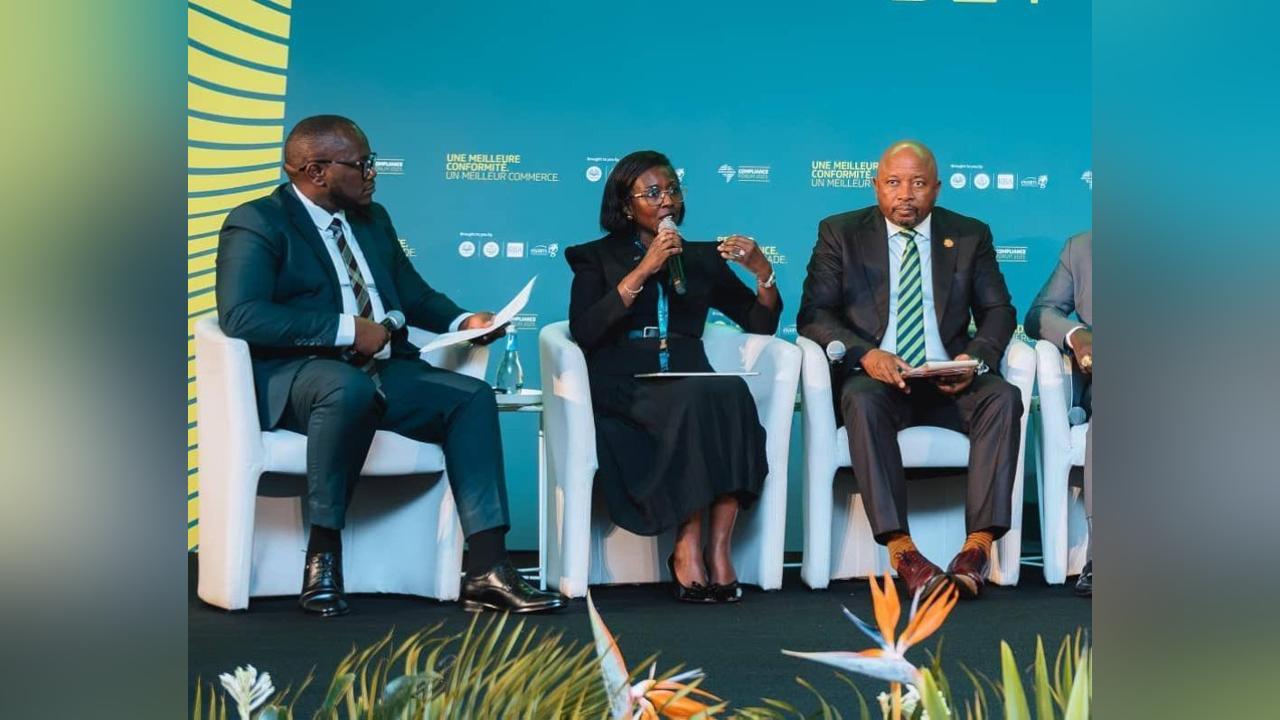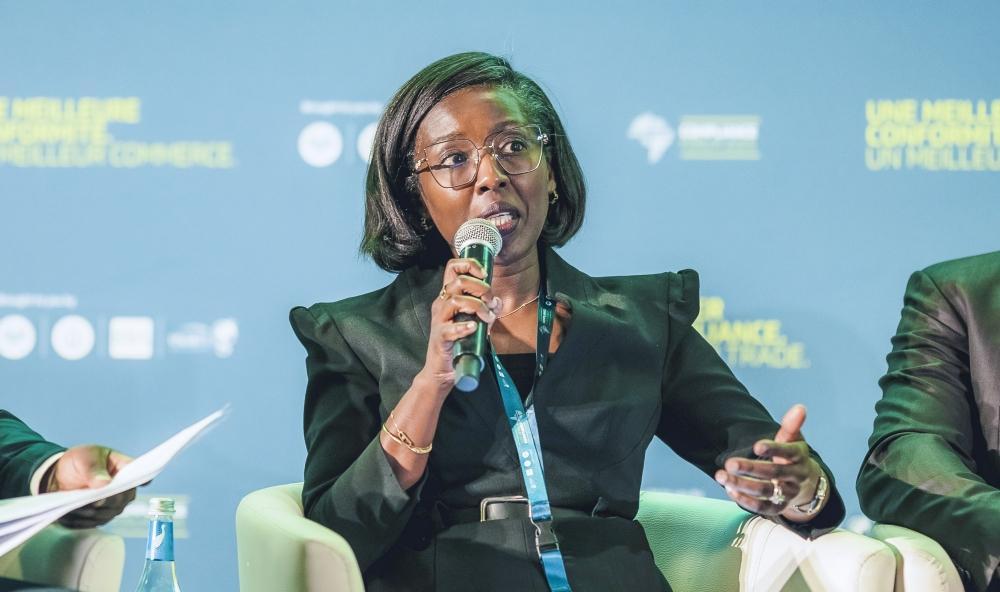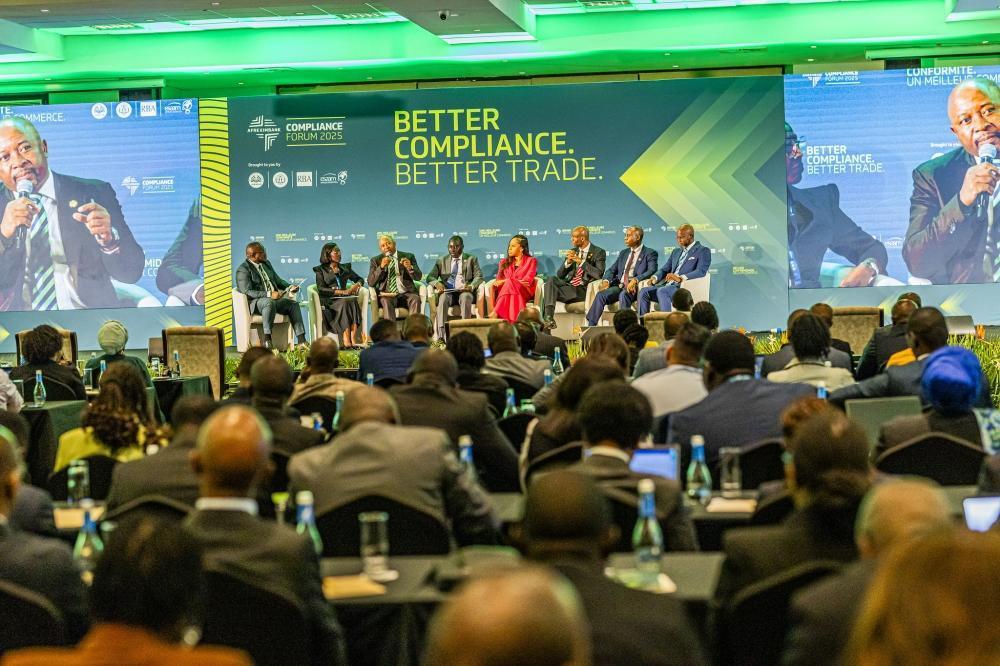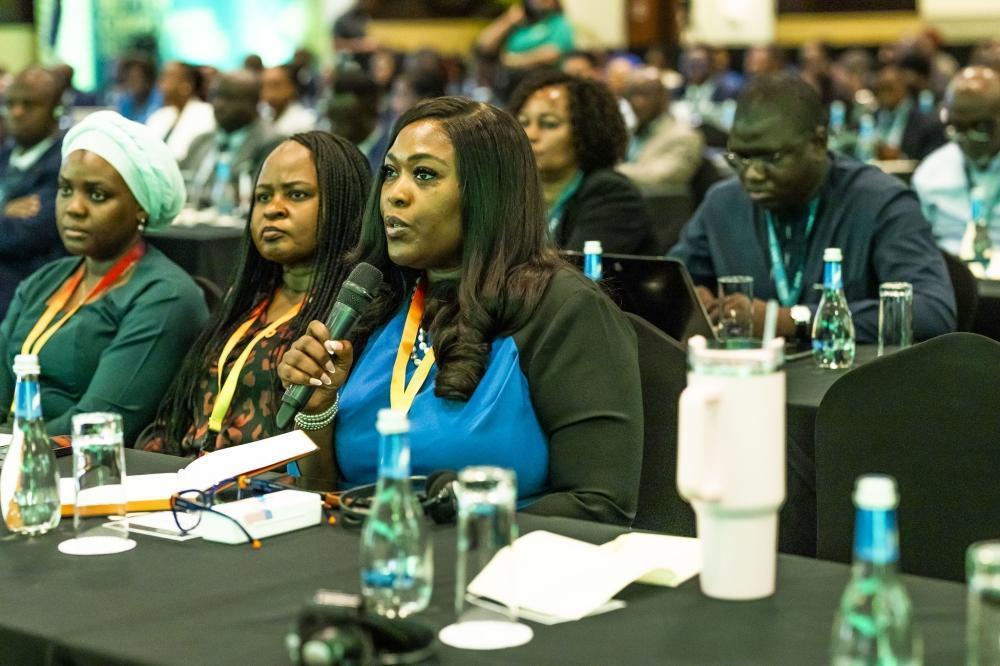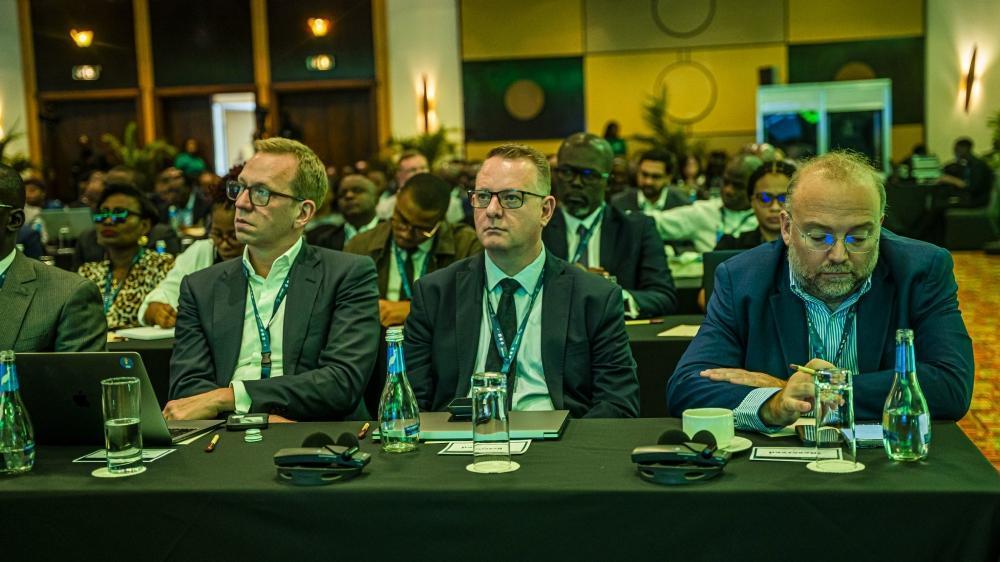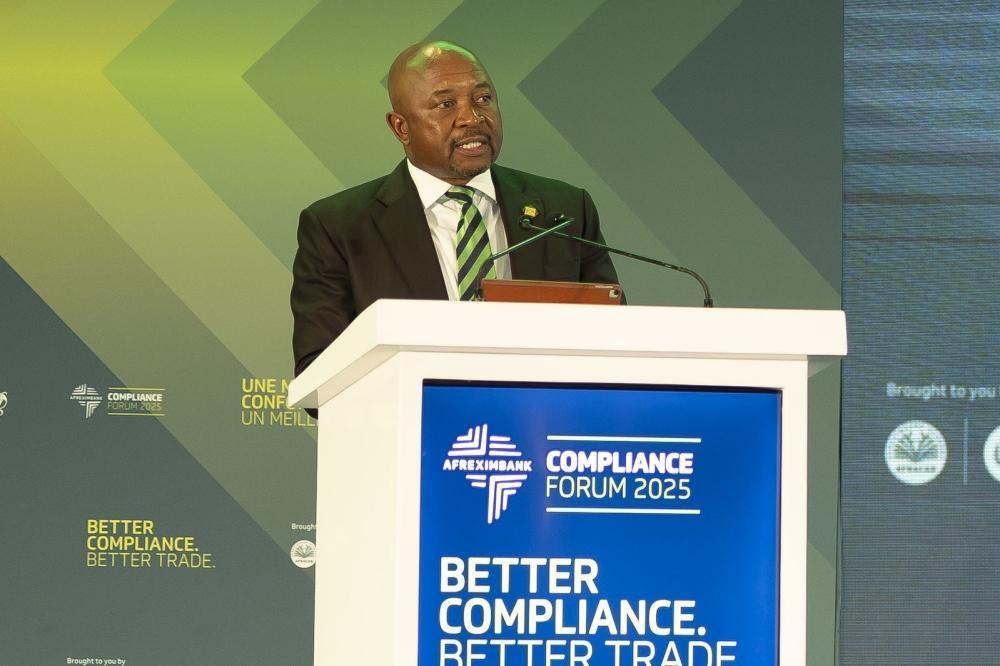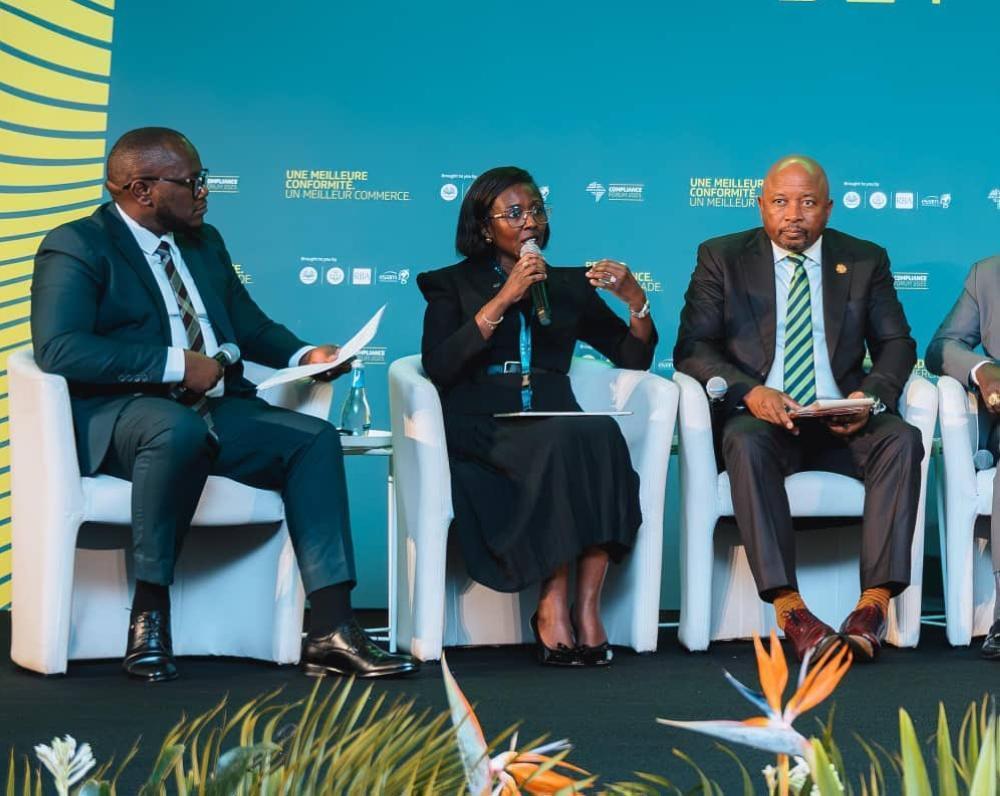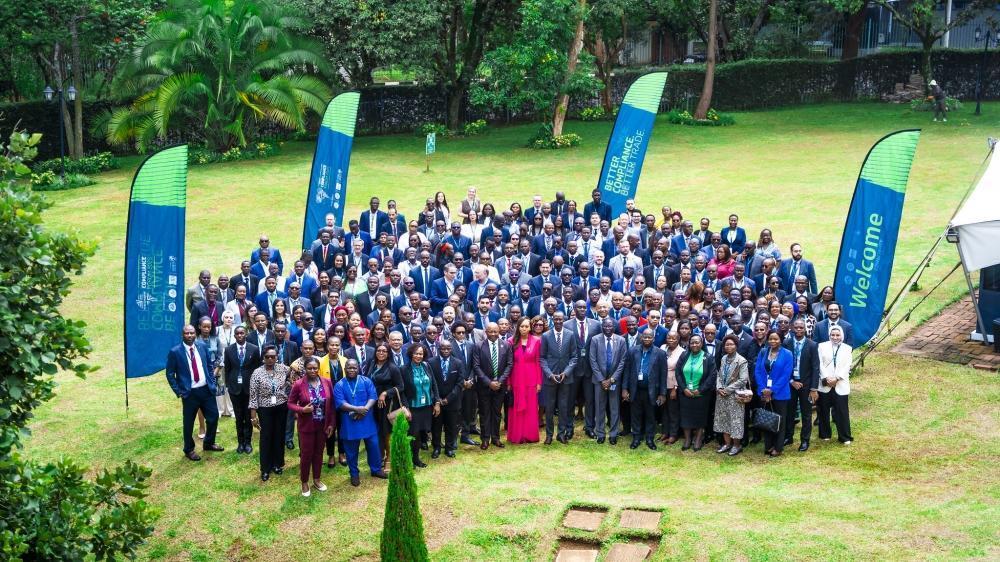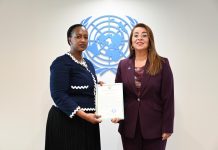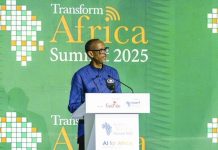Africa-Press – Rwanda. Policymakers, central bankers, and financial experts have said that artificial intelligence (AI) could transform how African nations monitor compliance, detect fraud, and facilitate seamless cross-border trade under the African Continental Free Trade Area (AfCFTA).
They were speaking during the African Export-Import Bank (Afreximbank) Compliance Forum (ACF) in Kigali on Wednesday, November 12.
Carine Umutoni, Managing Director of Ecobank Rwanda speaks at a panel discussion during the African Export-Import Bank (Afreximbank) Compliance Forum (ACF) in Kigali on Wednesday, November 12. Photos by Kellya Keza
“For decades, compliance was largely viewed as a burden, a cost of doing business. But now it’s viewed as a growth enabler. Despite progress in creating digital payment systems and cross-border trade platforms, Africa’s trade within itself still accounts for only 15 percent of the continent’s total trade volume. Globally, Africa’s contribution remains below 5 percent,” said Carine Umutoni, Managing Director of Ecobank Rwanda.
“Fragmented regulations and inconsistent compliance regimes are the key obstacles. We have the infrastructure to move goods, but without harmonised compliance systems and digital tools, movement of goods and payments remains restricted.”
Delegates follow a panel discussion during the African Export-Import Bank (Afreximbank) Compliance Forum (ACF) in Kigali on Wednesday, November 12.
Experts at the forum highlighted that AI-powered systems can enhance Know Your Customer (KYC) checks, detect suspicious transactions in real time, and strengthen anti-money laundering (AML) and counter-terrorism financing (CTF) frameworks across African jurisdictions, if fully used.
“Every new digital product comes with its own risks, but AI can help detect those risks faster, and regulators must invest in training and technology to stay ahead,” said Edwin Harris, the Director General of Inter-Governmental Action Group against money Laundering in West Africa.
By automating compliance tasks, AI reduces human error, accelerates verification, and enhances transparency, all essential to building trust across borders.
A participant asks clarification during a panel discussion session
Afreximbank is already leading the charge through innovative digital platforms such as MANSA, a repository that provides verified information on African businesses, and the Pan-African Payment and Settlement System (PAPSS), which enables instant cross-border payments in local currencies.
“AI can make these systems smarter. With machine learning, we can improve KYC verification, detect fraud faster, and reduce settlement risks across the continent,” said Kudakwashe Matereke, Regional Director, Regional Operations (EAAF), Afreximbank.
Delegates follow a panel discussion
“Through PAPSS, a trader in Uganda can now pay a supplier in Rwanda in Ugandan shillings, while the recipient receives Rwandan francs, eliminating the need for U.S. dollars or euros. AI enhances this by predicting currency volatility, optimising settlement flows, and flagging anomalies instantly.”
From a policy standpoint, the African Union (AU) stressed that harmonising compliance and data protection frameworks is essential to build trust and predictability across markets.
“Trade thrives on three things: predictability, transparency, and trust. AI can strengthen all three by ensuring data-driven compliance, shared records, and harmonised risk assessments,” said Patrick Ndzana Olomo, the Trade and Head of Economic Policy and Sustainable Development at AUC.
The AU is working closely with Afreximbank and member states to ensure that platforms like MANSA and PAPSS are interoperable and compliant with Africa’s emerging data protection laws. The efforts could lower the 20 percent higher cost of trading within Africa compared to trading outside the continent, according to the World Trade Organisation.
Africa currently loses an estimated $140 billion annually to corruption and $90 billion through illicit financial outflows. The African Union projects that if these barriers are addressed, the continent’s total trade volume could grow from $3.4 trillion today to $15 trillion within two decades.
Carine Umutoni, Managing Director of Ecobank Rwanda and other panelists engage in a discussion during the African Export-Import Bank (Afreximbank) Compliance Forum (ACF) in Kigali on Wednesday, November 12. PHOTOS BY Kellya Keza
Participants pose for a group photo during the African Export-Import Bank (Afreximbank) Compliance Forum (ACF) in Kigali on Wednesday, November 12.
For More News And Analysis About Rwanda Follow Africa-Press

